 Betting on football is huge business, with around £1bn wagered on the World Cup alone. And for millions of people around the world (ourselves included) a cheeky wager on the beautiful game brings an extra level of excitement to this wonderful sport.
Betting on football is huge business, with around £1bn wagered on the World Cup alone. And for millions of people around the world (ourselves included) a cheeky wager on the beautiful game brings an extra level of excitement to this wonderful sport.
With the ever-growing number of online bookies the choices facing a punter today can be overwhelming and here we take a look at some of the options for betting on football, as well as the best betting sites to use in terms of their betting odds and offers.
There are now more football leagues around the world covered by bookmakers than ever before, with more markets, more promotions and even better free bets. In other words, we punters are spoiled for choice as rival bookmakers try to outdo one another to win the custom of football betting fans… happy days indeed!
In this article: Best Betting Sites – How to Bet – Betting Rules – Football Cups – Betting Strategy
Best Bookmakers For Betting On Football
Football is the most popular sport on which to bet, not just in the UK but in Europe, Asia and other parts of the world too. As such, almost any online bookie worth their salt offers a fantastic service for football bettors, but here we take a look at only the crème de la crème, the best of the best.
BetVictor
The owner of BetVictor is man with a long history in British bookmaking and a reputation as the “Gentleman Bookmaker”. For football fans that means two things: great odds and a bookie not afraid to take a large wager. Indeed, BetVictor once accepted a bet from fellow bookie Fred Done of Betfred (see below) that Man United would finish above Chelsea – they didn’t and BetVictor won a cool £1m!
Whilst you might not stake that much, one thing is for sure with BetVictor: their odds are first class. Independent research from the 2013-14 season showed them as having the best Premier League match odds overall out of 17 major bookies, as well as top odds for the FA Cup, Champions League, Championship and Europa League. Impressive stuff and definitely a great reason to choose BetVictor for your football bets – over the course of a whole season slightly higher odds on each bet can make a huge difference to your overall returns. BetVictor also boasts a huge range of markets and some nice features, including great mobile and in-play suites.
Coral
Coral are a long-established bookie with roots that stretch back to the 1920s and like all British high street bookies, football is a major speciality. There is nothing to fault in the football betting provision, with odds that are well above average, more than 100 markets as standard even on lower league English action and many more for the Premier League and a dedicated football “zone” that allows quick and easy access to all the major markets, as well as upcoming and in-play events. The in-play console works nicely too, with a decent range of backup stats and customisation features including multi-view and several tools to help you organise your bets.
Betfred
Betfred owner Fred Done calls himself the Bonus King and so it’s no surprise to see that Betfred are brilliant when it comes to offers and freebies and given Fred is a huge Man United fan (see BetVictor section above for his lost £1m bet!) many of the best offers focus on football. However, Betfred also offer top odds – especially on the Premier League and more specifically on the Red Devils – and cover just about every football league and market you can think of, including loads of specials (though these aren’t quite as strong as at Sky Bet).
Fred is also known for pioneering new bet types – he invented the Lucky 15 – and Betfred’s Goals Galore (BTTS) and other markets like 30 Minute Limit will really appeal to punters who like something a little bit different in their football betting. The in-play console is excellent, as is the mobile site and both are nice extras that many football fans will find extremely useful (especially in the pub!).
One final thing to note is that Betfred has been known to go a little crazy when it comes to his beloved Man United, twice paying out early on the Red Devils to win the league only to see them beaten to the title (in 1998 and 2012 when they were pipped by Arsenal and Man City respectively). As if that wasn’t enough, he refunded losing bets on them to win the title in 2014 following David Moyes’ disastrous season in charge – United fans (and others), take note!
Football Bets: How to Bet on Football

Betting on football is really easy and great fun but with so many different markets, not to mention some unusual terminology, it can seem confusing at first. However, our guide to the main markets and the key rules to watch out for will help you out and within a week or two you’ll be as confident as Rickie Lambert over a penalty!
As said, there are so many options when it comes to betting on football, with up to 200 different football bets / markets, on some big games, as well as the options for accumulators, multiple bets, outrights and in-play bets, not to mention ante post! Here we take a look at the most popular options when it comes to betting on football, although with so many different bets available we recommend checking out one of the sites listed above to see what takes your fancy.
Match Odds
This may also go by the name of 90 minute betting, 1×2 or simply “Win” and is perhaps the most popular bet to place on a game of football. It simply involves picking who will win the match, or whether it will be a draw. It really couldn’t be much simpler and is a bet that is commonly used for accumulators, combining the results of a number of matches into one single bet.
Correct Score
Another nice easy one and a great choice if you’re looking to win big from a small stake because the odds are usually high, reflecting the difficulty of predicting the exact score in a particular match.
Goalscorer Bets
Betting on which player will score is another bet that usually offers long odds. You can usually bet on a named player to be the first, last or anytime goalscorer, the latter option at significantly shorter odds than the first two. See our rules section below for more information on own goals.
Half Time/Full Time
Often abbreviated to HT/FT this bet necessitates predicting who will be ahead at the break (or if it will be a draw) and what the outcome will be at the final whistle. A good way to up the standard match odds, especially if you predict an easy win for one side, where, for example, you might back Liverpool/Liverpool (so the Reds to be ahead at half time and full time).
Both Teams to Score
Often abbreviated to BTTS, this market is fun and exciting. It’s simple to understand too – if both teams score, that is to say neither ends the game with zero goals, the bet wins, or where there was a yes or no choice, the “yes” bet wins. Any score from 1-1 upwards lands a bet on “yes” and because the odds are usually around evens this is a common bet to include in an accumulator.
A recent addition to this market combines the match odds as described above and BTTS, so you might, for example, bet on “Arsenal to win and both teams to score” – another good way of upping the standard match odds.
Under/Over
Under/Over betting usually refers to betting on the total goals in a game, though other options may be given. The standard total is under/over 2.5 goals, meaning two goals and less or three goals and more but options from 0.5 goals up to 7.5 goals – or even more – are available.
Outright Betting
Outright betting refers to wagers made on who will win a particular event, rather than a single game. You may, for instance, bet on who will win the Premier League, which player will be the top goalscorer at a World Cup or who will win the FA Cup. These bets can be great fun as they often provide excitement over a longer period with lots of movements in the market and the chances of your bet winning changing as the season/competition develops.
Accumulators
Accumulators have been mentioned above and involve combining a number of unrelated selections into a single bet, whereby all legs of the wager have to win in order for the bet to be successful. Popular accumulators include backing the big Premier League sides (for example City, Chelsea, Liverpool and Arsenal – sorry Man United fans!) all to win on a given weekend, predicting the winners of all four divisions of English football at the start of the season or selecting a number of games in which you think both teams will score.
The odds from each selection are multiplied with the stake from one leg rolling over onto the next, meaning winnings can be huge but, of course, landing such an accumulator, even one for four big favourites to win, isn’t as easy as it may sound.
Betting Rules
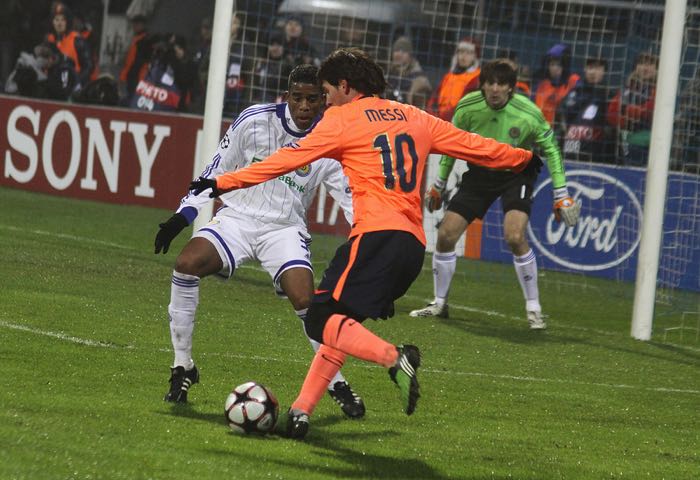
Lionel Messi (katatonia82, Bigstockphoto.com)
Betting on football is, essentially a simple and straightforward matter. Most online bookies have the same basic rules and whilst anomalies can crop up (either at lesser bookies or when something very unusual like an abandonment happens), in general, your betting should be hassle free. Of course, as with most things in life, there are rules and as long as you know the basic ones you should avoid any nasty shocks.
90 Minutes
Most bets, unless specified, apply to 90 minutes plus injury time but not to extra time, penalties or replays. A bet on Spurs to win 2-1 in the FA Cup that finishes 1-1 but Spurs win 2-1 in extra time would settle as a loser. Likewise, a game that ends 0-0 and Lionel Messi scores the first goal in extra time would not be a winning bet for any Messi goalscorer bets.
Own Goals
Own goals do not count for a number of markets, including first, last or anytime goalscorer. As such, if the only goal – or goals – in a game are own goals than the winning selection is actually “No Goalscorer”. This bet is often priced at the same odds as 0-0 but offers more value as it may also pay out even if the game doesn’t end 0-0.
Own goals are completely disregarded for scorer markets, so the first legitimate goal after an own goal will win a first goalscorer bet whilst the one before an own goal will win the last goalscorer market (assuming the own goal is the last goal of the game). Note that for both teams to score, over/under, match results and most others markets own goals count as normal.
Abandoned & Postponed Games
Games hit by weather, crowd trouble or other unforeseen eventualities will be subject to the bookies’ rules and these vary from firm to firm and depend on the competition, if and when the game is replayed and how many minutes had been played when the game was called off. This is such a rare occurrence however that most punters won’t need to worry about it.
Dead Heats
Dead heats also rarely occur but can impact certain outright bets, for example top goalscorer markets or stage of elimination bets in cups. Where two or more teams or players tie this is often settled as a dead heat, meaning the stake is divided by the number of players/teams involved in the tie, with one portion being settled as a winner and one as a loser. Dead heats can apply to all sports but this is definitely one to watch on top goalscorer bets in football.
Football Tournaments
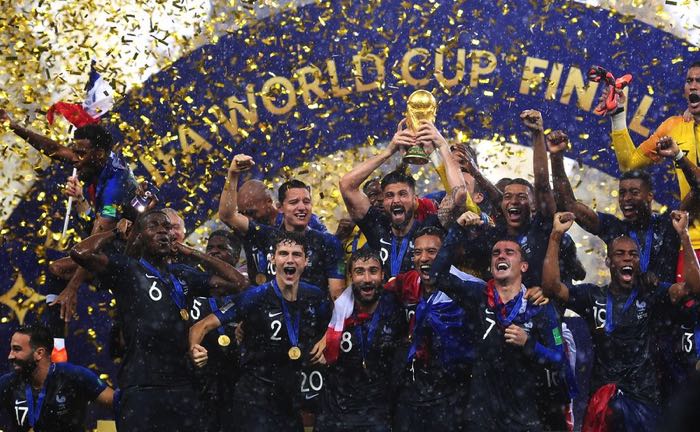
By GPA Photo Archive, Flickr
In this next section we’ll take a look at the bigger football tournaments, which offer some of the biggest betting value, especially when it comes to bookies offers and promotions.
Champions League
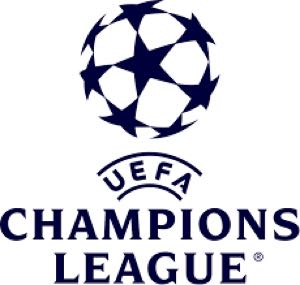 The Champions League is the pinnacle of domestic football for European countries. The tournament is made up of the highest ranked teams from across Europe and they will play through a series of qualification stages until we come down to one winner. The tournament has been running in its current form since 1992, but it’s actually been in existence since 1955 where it was then known as the European Cup.
The Champions League is the pinnacle of domestic football for European countries. The tournament is made up of the highest ranked teams from across Europe and they will play through a series of qualification stages until we come down to one winner. The tournament has been running in its current form since 1992, but it’s actually been in existence since 1955 where it was then known as the European Cup.
The Champions League kicks off with a preliminary qualifying stages where teams made up from lower ranked member associations and also teams who have lower rankings in more established leagues will play through a knockout stage before reaching the Champions League proper.
The main competition is made starts off with 8 groups of four and each team will play each other twice. The top two teams fro each group will then move forward into the knockout stage and again play each tie over two legs (both home and away). The format goes in the order of a last 16, quarterfinal, semi-final and final. It’s worth noting that the final is played over just one game played at a neutral venue decided before the tournament begins.
Real Madrid are the most decorated club in the competitions history winning it no fewer than 11 times (5 times as the Champions League), with their latest success coming in 2016. Cristiano Ronaldo has scored the most goals with 93 from just 127 appearances, with Iker Casillas having the most appearances with 156.
FA Cup
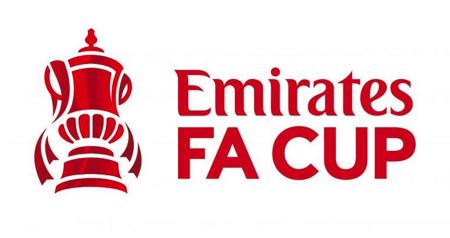 The FA Cup is the oldest cup competition in the world. The tournament dates back to 1871 and since then has gone on to be one the biggest domestic trophies in England. What’s so unique about the FA Cup is that it’s open to as low as level 10 in the English domestic game, giving a fantastic opportunity for some low level professional and even amateur teams to potentially play some of the biggest teams in the country. It’s for this reason why many people talk about the ‘magic of the FA Cup’ and also why it throws up so many shock results over the years.
The FA Cup is the oldest cup competition in the world. The tournament dates back to 1871 and since then has gone on to be one the biggest domestic trophies in England. What’s so unique about the FA Cup is that it’s open to as low as level 10 in the English domestic game, giving a fantastic opportunity for some low level professional and even amateur teams to potentially play some of the biggest teams in the country. It’s for this reason why many people talk about the ‘magic of the FA Cup’ and also why it throws up so many shock results over the years.
The tournament will go through a number of preliminary rounds allowing the lower ranked clubs in the country to compete. These actually start as early as August, but the first round of the competition proper doesn’t actually start until November. All games will be played over 1 leg and drawn from random for each round.
The competition really starts to pick up in the third round, which is the first round that the Premier League teams will get introduced and these will be played usually in the first weekend of January. It’s here where many of the smaller teams will be hoping for a tie against much higher opposition in the return of their ’15 minutes of fame’.
The completion then works it’s way through tot the sixth round before then playing semi-final and final, both which are now played at Wembley Stadium. The winners of the tournament will gain entry into the Europa League. If the team that wins has already gained entry to either this or the Champions League, then the runners-up will be awarded the prize. The winners also get to play in the Community Shield – curtain raiser for the Premier League – against the previous seasons winners of the Premier League.
The two most decorated teams to have won the FA Cup are Arsenal and Manchester United, with 12 wins apiece. These two teams also have the most final appearances with 19. Ashley Cole of Chelsea and Arsenal has won the tournament the most times with 7.
European Championship
 The European Championship is the leading tournament for countries that have representatives within UEFA (Union of European Football Associations). The tournament is very similar to that of the World Cup, apart from, obviously is only made up of European Countries. The tournament has been played since 1960 and will take place in June/July time held every 4 years. The hosts will go through a bidding process and then the venue for each tournament is decided by a vote from officials within UEFA.
The European Championship is the leading tournament for countries that have representatives within UEFA (Union of European Football Associations). The tournament is very similar to that of the World Cup, apart from, obviously is only made up of European Countries. The tournament has been played since 1960 and will take place in June/July time held every 4 years. The hosts will go through a bidding process and then the venue for each tournament is decided by a vote from officials within UEFA.
The first phase of getting into the tournament is going through the qualifying groups. All teams must enter this away, apart from the host country, which automatically qualify. The qualifying stages are made up of 6 groups of 6 teams and 3 groups of 5 teams, making 9 groups in total. Each country will play the other countries in their group twice, once home and once away, then the top two countries will qualify automatically and the top 5 best placed 3rd place finishers along with them.
The final tournament will include 24 teams in total, spread across 6 groups. The countries will include several ranked teams, which cannot be drawn against each other and then the rest of the teams are draw at random. Each team will play against each other just once in the group stage, before the top 2 teams and 4 best placed 3rd places will move into the last 16. It’s at this stage where the tournament moves into the knockout stage, working it’s way though the quarterfinal, semi-final and then final.
Germany and Spain are the two most decorated countries in the Euro’s with 3 wins apiece. Iker Casillas holds the record for the most tournaments played with 5 and Michel Platini is the all-time top goalscorer in a single tournament with 9.
World Cup
![]() The (FIFA) World Cup isn’t just regarded as the biggest tournament in the footballing calendar, but it’s widely regarded as one of the biggest occasions in world sport. The tournament brings together 32 of the top footballing nations from across the globe and is the only tournament where countries play on an intercontinental basis, rather than just a geographically limited one. The World Cup usually takes place in June/Jul time and is run every 4 years. The host country’s will go through a bidding process to host the tournament before a number of delegates and officials from within FIFA then vote on which they think will be best suited for the role.
The (FIFA) World Cup isn’t just regarded as the biggest tournament in the footballing calendar, but it’s widely regarded as one of the biggest occasions in world sport. The tournament brings together 32 of the top footballing nations from across the globe and is the only tournament where countries play on an intercontinental basis, rather than just a geographically limited one. The World Cup usually takes place in June/Jul time and is run every 4 years. The host country’s will go through a bidding process to host the tournament before a number of delegates and officials from within FIFA then vote on which they think will be best suited for the role.
The qualification rounds for the tournament are broken up into 6 continental zones, which include Africa, Asia, North and Central American and Caribbean, South America, Oceania and Europe. The format for each zones qualifying phase will differ, with some electing go down the more conventional group format with a certain number from each group qualifying. Whilst others adopt a league format with a certain number of spots each getting a place. The decision to choose either is usually abased on the overall quality of each continent and then taken from there.
The tournament itself will include 32 countries in total in a mix of 8 groups of 4 teams. Each team from within the group will play each other just once and the top two teams from each group then progressing to the last 16 of the competition. It’s at this point that the tournament becomes a round robin, knockout phase and the winners will be decided on the day, using extra time and penalties if needed. You will then see a quarterfinal, semi final and final, before the inner is crowned. The World Cup will also run a 3rd/4th place play off for the two losing teams of the semi-final.
Brazil are the most decorated team in World Cup history winning the tournament on 5 separate occasions. Germany and Italy are both second with 4 wins each. Miroslav Klose of Germany has the most cumulative tournament goals with 16, ahead of the likes of Ronaldo (15), Gerd Muller (14), Just Fontaine (13) and Pele (12).
Europa League
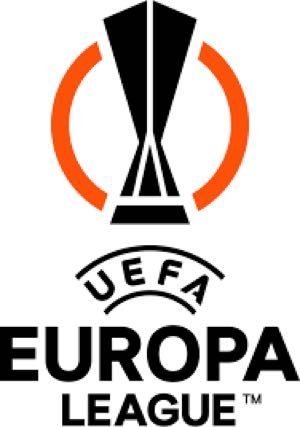 The Europa League is one of the pinnacles of the domestic season for teams across Europe. The best way to look at it is almost like a baby version in the Champions League, made up from teams that are slightly lower ranked than those in their bigger sister competition. The format is a little longer than the Champions League however, with qualifying rounds starting as early as June and the final then taking place in May. The games are played at the representative teams home grounds then the final will be selected at a neutral venue each season by a panel of UEFA representatives.
The Europa League is one of the pinnacles of the domestic season for teams across Europe. The best way to look at it is almost like a baby version in the Champions League, made up from teams that are slightly lower ranked than those in their bigger sister competition. The format is a little longer than the Champions League however, with qualifying rounds starting as early as June and the final then taking place in May. The games are played at the representative teams home grounds then the final will be selected at a neutral venue each season by a panel of UEFA representatives.
The Europa League is widely regarded as starting when the Group Stages kick off, which includes 48 teams, spread across 12 separate groups. In each group the teams will play against each other both home and away and from there the top 2 teams will progress to knockout stages. It’s also at this point where the 8 teams who finished third in their Champions League groups will enter the competition and it them plays out as a straight knockout over two legs between each team. The final is the only leg that will just be one round, and as mentioned, will be played a neutral location.
Sevilla are the most decorated team in the competition, winning it on 5 separate occasions from 2006 to 2016. The all-time leading scorer is that of Sweden’s, Henrik Larsson, with a return of 40 goals from just 56 games. Giuseppe Bergomi of Italy and Inter has the most appearances with 96 games, excluding qualifying games. Ajax has the highest win with a mammoth 14-0 victory over Red Boys in 1984.
League Cup
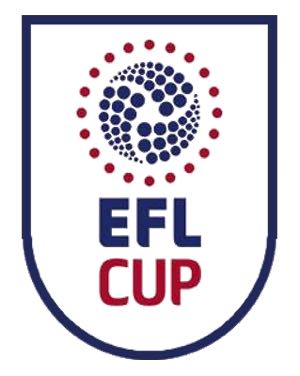 The League Cup has often been overs overshadowed in England as the inferior tournament to that of the FA Cup, but it carries just as much weight in the fact that the winning team will gain entry into the Europa League, the same as if they won the FA Cup. The cup includes all 92 teams from the football league and there is no qualifying needed to gain entry, you just need to be a member of the football league.
The League Cup has often been overs overshadowed in England as the inferior tournament to that of the FA Cup, but it carries just as much weight in the fact that the winning team will gain entry into the Europa League, the same as if they won the FA Cup. The cup includes all 92 teams from the football league and there is no qualifying needed to gain entry, you just need to be a member of the football league.
The competition starts and finishes with a straight knockout format, but many of the Premier League teams will not enter until the second and third rounds, respectively. The round that they do enter will depend on the position that they finished in the league the previous season. Once all team are in the round-robin really kicks off and it works it’s way down to the quarterfinal, semi-final and final, which is played at Wembley, usually around March time, a couple of months before the end of the English season.
Liverpool has won the competition more times than any other club since it came into fruition in 1960. They have 8 cups to their name, with the next best that of Aston Villa and Chelsea, both with 5 each. Ian Rush is the most decorated player with 5 League Cup wins and is also joint top goalscorer with Sir Geoff Hurst with 49 goals apiece. Liverpool also have the biggest team win, beating Fulham 10-0 in 1986, which equalled West Ham’s 10-0 victory over Bury in 1983.
Copa America
 The Copa America is the most prestigious tournament in the South American footballing calendar. The competition is also the oldest South American sporting event, with the first Copa America being held in 1916. Whilst South American countries make up the majority of nations in the event, in more recent years they have opened their doors to allow countries from North America and Asia to compete. The tournament comes at the end of the footballing season, starting in June and finishing in July run every 4 years.
The Copa America is the most prestigious tournament in the South American footballing calendar. The competition is also the oldest South American sporting event, with the first Copa America being held in 1916. Whilst South American countries make up the majority of nations in the event, in more recent years they have opened their doors to allow countries from North America and Asia to compete. The tournament comes at the end of the footballing season, starting in June and finishing in July run every 4 years.
Unlike a lot of major football tournaments, there is no immediate qualifying for the event, instead countries are invited to play. In days gone by there was no host nation and teams just played each other home and away, but these days a host nation is selected by CONCACAF, the governing body for football in South America. There are 12 teams that play and they compete in 3 groups of 4 teams. Teams are allocated groups by seeds (one including the host nation) then are ranked on World FIFA Points accordingly.
Two teams from each group and the two highest ranked runners up will advance to knockout stage, before working their way through to final. Uruguay is the most decorated nation to have played the event with 15 wins in total, Argentina following them closely in second with 14 wins, respectively.
Football Betting Strategy: The Basics
 When it comes to betting on football, the huge range of markets alone can seem overwhelming and that’s before you even decide which team you actually want to back. Football is the biggest betting sport globally and, therefore, it is the one to which almost all bookies dedicate the most resources. That means hundreds of markets, thousands of matches and lots of promotions and betting offers.
When it comes to betting on football, the huge range of markets alone can seem overwhelming and that’s before you even decide which team you actually want to back. Football is the biggest betting sport globally and, therefore, it is the one to which almost all bookies dedicate the most resources. That means hundreds of markets, thousands of matches and lots of promotions and betting offers.
Despite the dizzying plethora of choice, the most important question will always be, “what should I bet on?” We can’t provide you with winners and there is no simple strategy or tactic that can make you a millionaire, we’re sorry to say. If there was, we wouldn’t be writing this feature – we’d be in a yacht sailing around the Caribbean, rum in hand.
Value Betting
Ultimately, managing a net win in the long term relies on your ability to find value bets. We talk about this in greater detail elsewhere but, in brief, a value bet is one where the odds are longer than they should be given the probability of that event happening. The easiest example to think of is a coin toss, with both heads and tails having a 50% chance of winning. Odds longer than evens, therefore, would be a value bet.
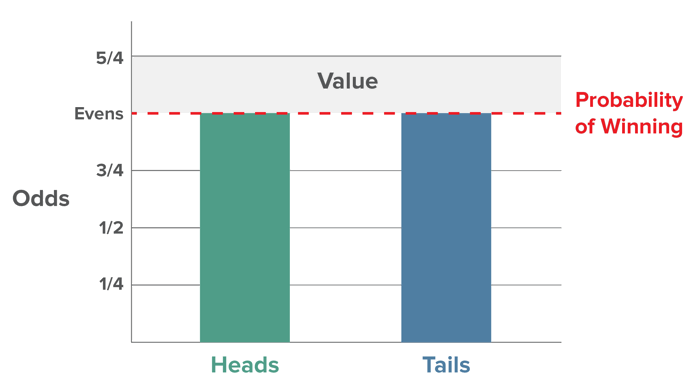
Value Betting in a 50-50 Coin Toss
The only real way to find value bets is to spend long hours studying the available odds, as well as using the huge amount of information and data that exists to try and decide the true probability of a given outcome. Of course, if that all sounds like far too much hassle, you can always simply follow the many betting tips we offer!
Whether you want to try and study the odds and find your own bets or use our tips, it’s still worth understanding a few basic facts about betting on football. Read on as we take a look at some of the most popular types of bets you might choose to place. We will also provide pointers on tactics you can use to give yourself the best chance of winning more often than you lose.
Match Betting Strategy
 One of the most basic and popular bets to place is to bet on which team will win a game. This is sometimes known as match betting, 90 minute betting, “to win”, 1×2 betting, or home/draw/away. This is a fun and simple bet that is easy to understand – you are just betting on who will win the match (in 90 minutes plus stoppage time).
One of the most basic and popular bets to place is to bet on which team will win a game. This is sometimes known as match betting, 90 minute betting, “to win”, 1×2 betting, or home/draw/away. This is a fun and simple bet that is easy to understand – you are just betting on who will win the match (in 90 minutes plus stoppage time).
However, when we look at “match betting” here, we are actually referring to something a little different. 1×2 betting is just one of many available markets within match betting as we are considering it. What we are referring to are all the various bets that you can place on a single game, as opposed to a cup, league, special or other competition.
There are many, many markets that come under this umbrella and many of these have strategies of their own. Here we look at some of the things you should be aware of when placing some of the most popular bets you can place on an individual match and offer our thoughts on how you can gain an edge or at least try and land your fair share of winners.
To Win
As said, this is the bet most people place, most often. The routes to value on this market are fairly generic, with studying stats, form and team news all key. In theory, anything that is essentially public knowledge should be factored into the odds already, which is why finding value is so tricky.
For example, should a team be without their star striker and goalkeeper, they are clearly less likely to win. This might make you want to oppose them and back the draw or the other side. However, more often than not, the bookie has already factored these issues into the prices and the other side’s odds will already be lower than they would otherwise have been.
To find value in these bets we need to think a little outside of the box:
Motivation
One tip we have for finding value on such bets is to consider how much weight bookies place on certain factors. For example, motivation is often overvalued by bookies. At the end of the season, if a side with “nothing to play for” comes up against a side below them in the table who are desperate for points and are embroiled in a relegation battle, ask yourself, are the bookies overplaying the motivation factor?
The struggling team has more than likely been up against it for some time and their desperation hasn’t helped them before. They are down there because they are not a great side and yet we have seen instances where the bookies have priced the away team as favourites, despite them being as many as 12 points behind their hosts, simply because it is deemed they will be “more up for it”.
Home or Away
No side likes to lose at home and, especially when their form is good, such clubs can offer great value against well-backed but inferior teams who supposedly will want it more. That said, ignoring or opposing the “need to win” factor entirely is certainly unwise.
Nothing to Lose
One similar thing to look out for is when a club has already qualified from a group or already sealed top position. Such a scenario may be in the Champions League, Europa League, World Cup or other competition. If a side has won the group with a game to spare, whilst their opponent must win to secure the second qualification spot, this is sure to have an impact on how the fixture plays out.
As in the scenario previously discussed, however, you must be careful not to overplay such a factor and also that the odds don’t already allow for it. In games like these getting an early idea of the team news can be crucial. If the manager announces that several top stars are being rested you may well be able to snap up some value on the opposition before the bookies cut their odds
First Goalscorer
 Betting on who will score first (first goalscorer, or FGS), or even last, can sometimes throw up some nice value bets. As ever, team news is likely to be crucial but, especially in the lower leagues, the bookies are not always as thorough as they might be. If a side has a new or different penalty taker or free kick taker, they might offer real value.
Betting on who will score first (first goalscorer, or FGS), or even last, can sometimes throw up some nice value bets. As ever, team news is likely to be crucial but, especially in the lower leagues, the bookies are not always as thorough as they might be. If a side has a new or different penalty taker or free kick taker, they might offer real value.
If the said player is a defender, otherwise unlikely to score, this can particularly be the case, especially if it isn’t common knowledge that they will be on set piece duty. Moreover, if a side is especially dirty, or the ref in charge is a little over-zealous, this can increase the attractiveness of such a bet even further.
Pick The Right Market For Your Bet
One tip that applies to Asian handicap bets and FGS – and indeed a range of other match odds bets – is to check the available odds for different markets that actually cover the same eventualities. For example, an Asian handicap +0.5 bet is the same as a win/draw double chance bet but some bookies actually offer bigger odds on the Asians as these are usually more competitive.
In a similar but in one sense opposite sense, some markets that appear to be the same might not be. For example, backing 0-0 might seem to be identical to backing “No scorer” in the first or last goalscorer market. Often bookies price these bets at the same odds, however, wise punters will always back “No scorer”, as this will be a winner if the game ends 0-0 and if the only goal – or even goals – are own goals.
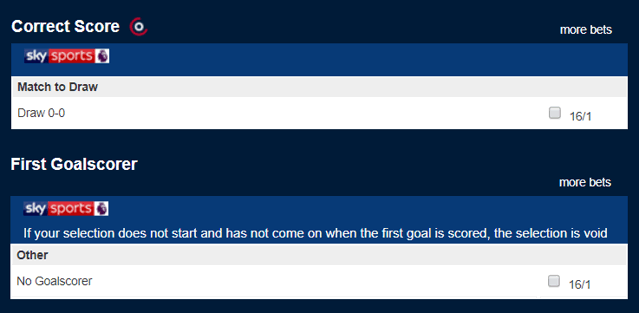
Note: Always check the odds for both markets, never assume that 0-0 and first goalscorer have the same odds as this sometimes isn’t the case.
Half Time/Full Time
This market and some others similar to it that involve half betting may give you the chance to find a nice bet and land a winner at good odds. That’s because bookies often generate the odds for such bets by applying a fixed algorithm to the match odds. Generally speaking that will give them a fairly accurate idea of the correct prices.
However, some teams may consistently be performing better in either the first half or the second. Most of the time this is simply a statistical anomaly with no underlying cause. However, sometimes there may be a genuine reason for this and in this instance the HT/FT market can be great. For example, a side’s style of football may wear teams down, another side may be super-fit or lack fitness.
All of these could lead to them over- or under-performing in a given half, thus meaning the algorithm-generated HT/FT odds are not where they should be. On top of that, confidence and psychology can play a part, for example if a team is having a run of late winners or second half comebacks – or the opposite – their belief that this will happen can mean it is more likely to come to pass.
Goal Bets & Automated Odds
 Betting on over or under a certain number of goals, usually 2.5, or whether both teams will score (BTTS) or not, are two of the bets that punters love the most. There are a range of other markets within this category and, as with the HT/FT market, value may be sought by trying to exploit the fact that the odds are largely automated.
Betting on over or under a certain number of goals, usually 2.5, or whether both teams will score (BTTS) or not, are two of the bets that punters love the most. There are a range of other markets within this category and, as with the HT/FT market, value may be sought by trying to exploit the fact that the odds are largely automated.
Especially for the lower leagues and smaller European and global competitions, odds for many markets are derived from the match odds. So, for example, where one side is a huge favourite in the match odds, as a general rule, over 2.5 goals will be favoured, whilst “BTTS – no” will also be fancied. The logic here is that in a game one team should dominate, there will be lots of goals and it will be all one-way traffic.
This can throw up value bets when a more detailed look at the game indicates that the opposite (as compared to what would be expected based on the match odds alone) outcome is more likely than normal.
One example might be a side who are simply woeful in defence and regularly concede three or more goals but in attack are actually very dangerous. Against a high flying opponent they may be big underdogs and thus the algorithm-generated odds on both teams to score might be generous. Equally, a top side might be winning games for fun but doing so on the basis of an excellent defence. If they don’t score too many but very rarely concede, then backing under 2.5 goals might be a wise play when they are up against a side on a terrible run of form, especially if that side are also quite low scoring.
Correct Score
Correct score bets can also fall into this category of markets where the odds are largely based on the odds for the home/draw/away market. This can throw up some interesting bets if a team has seemingly got into a habit of winning 1-0, or perhaps producing 0-0 stalemates.
When it comes to the correct score of games there are reams and reams of stats about past matches and, as well as the match odds, the bookies use this data to create their correct score prices. However, trends change over time and one thing that is true of just about every market in every sport is that it takes time for punters and bookies to recognise that these are new trends that are in fact here to stay, rather than mere anomalies.
Obviously, deciding when a run of results is a trend with a real underlying cause, rather than an unusual sequence of events thrown up randomly, is the hard part. With markets like correct score betting, this is further complicated by the fact that different leagues in different countries operate slightly differently, with some tending to be more attacking and others more defensive.
There are lots of sites that analyse such data and one great way to try and find value is to revisit these sites regularly. In this way you may be able to spot a changing trend ahead of the crowd and thus get the value before the bookmakers realise their odds are a little out.
League Betting Strategy
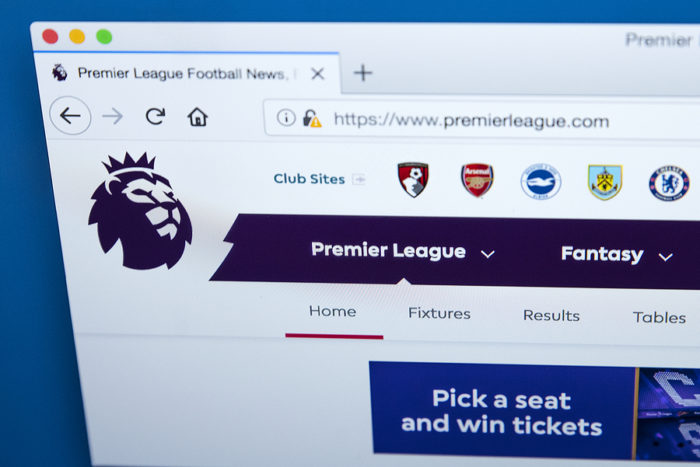
Aside from betting on individual games, betting on who will win a given league is also a hugely popular bet. As ever, the best route to finding winners at worthwhile odds is to study every possible piece of relevant information. If your efforts discover a team that has seemingly been mispriced by the bookmakers, you could be on to a winner.
Only Back the Favourites if the Price is Right
In the modern era of football when money is so important, many leagues around the world are regularly dominated by the same teams. For example, the likes of Juventus in Serie A, Bayern Munich in Germany and PSG in France’s Ligue 1 always start as red hot favourites to win their respective league (at least at the time of writing).
Some punters think that they can back the favourite in August, sit back and claim their winnings in May. However, all good runs come to an end eventually, so piling in at odds of, say, 1/7 before a ball is kicked can be imprudent to say the least.
The key point to remember is to always ask yourself, do the odds represent value based on the probability? Nothing is 100% certain when it comes to predicting the future and every single day, somewhere in the world, bets with odds of 1/10, 1/20 or even shorter, lose.
Don’t Ignore the Outsiders
Paying special attention to summer signings, managerial changes, commitments beyond the league and even the early fixtures (which, if easy, can help build confidence) is crucial. Whilst many are tempted to opt for the obvious, “usual suspects”, ever since Leicester’s remarkable 5000/1 Premier League triumph in 2016, lots of punters have tried to pick “the next Leicester”.
We wouldn’t advise backing such outsiders but, especially in some of the smaller leagues, winners at double-digit odds are not uncommon and can deliver brilliant entertainment for the whole season – not to mention a tidy payout in May!
Ante Post Betting Strategy
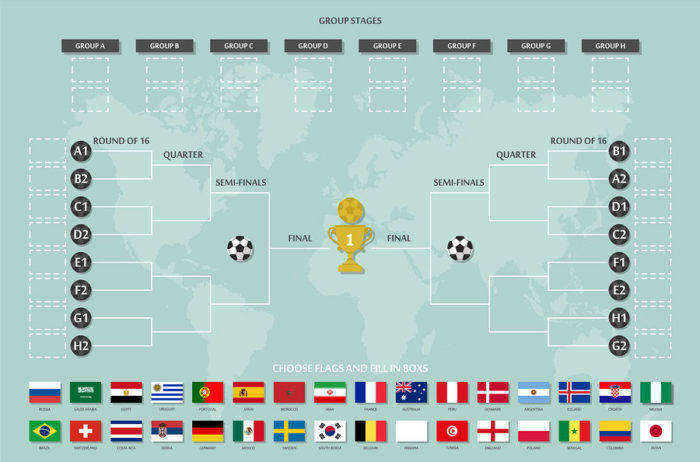
Ante post betting, which is where you bet on an event in advance, before all the entrants are confirmed or the full details of teams are available, is very popular with football fans. It is especially relevant to betting on who will win a league or leagues, with many punters regularly placing bets before the season begins.
This may be a single wager, for example Manchester City to win the Premier League, or some form of accumulator or multiple, for example naming the winners of the “big five” European leagues. Whatever you decide to bet on, you can get huge odds and great value if you call things right.
Bigger Odds But Harder to Win
That’s because of the increased uncertainty associated with an ante post wager. If you bet before the season has started and before the transfer window has closed there are so many unknowns to try and factor in. Will the side you fancy lose their main striker, pull off a major coup in the transfer market or perhaps suffer terrible injury luck in pre-season games?
Deciding when to place your ante post bet on who will win a league is tricky. You can place such bets before the preceding season has even finished and such wagers can deliver huge odds. However, as a general rule we would advise waiting until at least some of the clubs’ transfer dealings have been made. One summer’s transfers rarely make or break a title challenge but even so, having at least some idea of how the squad will shape up is prudent, especially if you intend to stake a large sum on a favourite.
In-Play Betting Strategy
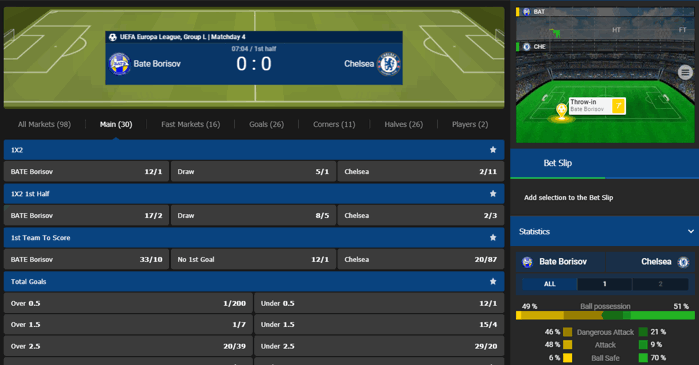
In some regards, in-play betting is the opposite of ante post. With the latter you are betting days, weeks or even years in advance of an event. In contrast, with the former, you are actually betting after it has started and during the match itself.
In-play betting has now been around for a long time. However, it has certainly experienced a huge growth over the last five to 10 years. Much of that is down to the prevalence of smart phones, making it quicker and easier than ever to have a bet on a game wherever and whenever you like.
In-play betting is great fun and a superb way to spice up a match, especially one in which you aren’t otherwise overly interested. It’s also a good option should you place a bet pre-match that loses very early, thus ending your interest in the game.
Many of the same ideas apply to in-play betting as generally apply to all the areas we have looked at. However, here are a few additional pointers and things to be aware of:
- No Easy Wins – some punters assume in-play betting gives them some kind of edge, for example by backing under 0.5 goals before the game and then backing over 0.5 goals at longer odds when the match remains 0-0 after five minutes. We have seen countless such systems but none work and all can easily be downed by a freak early goal or other occurrence
- How Live is Live? – be careful of odds or bets that seem too good to be true, perhaps the “live” broadcast you are seeing is actually a little bit behind the real events
- Bet Delay – the delay between placing your bets and them being accepted, usually 5-10 seconds, means trying to beat the system by anticipating what is going to happen next won’t work
- Caution – much as in-play betting can be great fun, because it can also be very quick-paced, it can be addictive. Don’t chase losses during a game by making more and more bets
- Betting When Not Watching – we would advise extreme caution when betting in-play on a game you aren’t watching. Live text services, Twitter, the bookies’ stats and even the radio are no substitute for seeing what is really going on in the game with your own eyes. Moreover, it has been known, very infrequently, for even reputable websites to make errors about the score or state of the game.
Whilst all that may seem a little negative, the fact remains that betting in-play is a great way to gamble. If you feel you are a good judge of a game it can really allow you to have a look at how the sides are playing before committing your money.
Of course, we’ve all seen games where one side batters the other and simply can’t score, or others that appear to have 0-0 written all over them until two late penalties. Strange things are every day occurrences in life and football but there is no doubt that in-play betting adds an extra element of skill into betting on a game.
Cup Betting Strategy

Credit: fifg / bigstock
Betting on who will win a cup competition is another popular football bet and is such wagers are often placed ante post. Cup bets are also a great way to get long-term enjoyment from a wager. Obviously there is a danger your side may be eliminated early but even then, depending on when you place the bet, you may get a few weeks or months of hope!
Betting on cups is a little trickier than betting on the league. Over a 38-game season, the best team will almost always, or lots would argue always win. However, in a knockout competition, one piece of bad luck or a poor decision from the ref or linesperson can stop your bet in its tracks.
How Important is the Cup to the Team?
With the more prestigious cups, for example the major international competitions such as the World Cup or Euros, or the Champions League, things are about as predictable as they can be in a cup. Teams do everything in their power to win and, more often than not, prioritise the competition over all others.
However, where you have to be more careful with your bets are those times that squad rotation is likely to feature heavily. Just how seriously will the likes of Man City or Liverpool take the League Cup, or even the FA Cup?
That said, whilst many argue that the biggest sides don’t take the domestic cups seriously, in the last five years no side other than Manchester City, Manchester United, Chelsea or Arsenal have won either the FA Cup or the League (EFL) Cup. These days the top Premier League sides have such strength in depth that they can field weaker starting XIs during the early rounds and still make it through.
Of course, that isn’t necessarily the case in other cups around the world, nor in the lower league-only cups in the UK. Anyway, aside from considering just what priority a cup is likely to hold for a team, it’s also worth considering if they are a “cup side”.
Look for Hidden Value
Teams that are capable of outstanding football on their day but who are, perhaps, less likely to be able to grind it out over a whole season, may offer good value in the cup. That would certainly seem a reasonable explanation for the seven FA Cups Arsene Wenger won with Arsenal.
Ultimately, when it comes to the cups, indeed any knockout competition where a side’s fate is decided over 90 minutes, there is always a degree of luck needed. Many who bet on the cups often go with an approach of “I have a feeling it could be their year”. That’s not likely to yield overly impressive results over the long term; however, for the recreational punter and given the unpredictable nature of cups, it isn’t something we would wholly advise against!
Football Specials
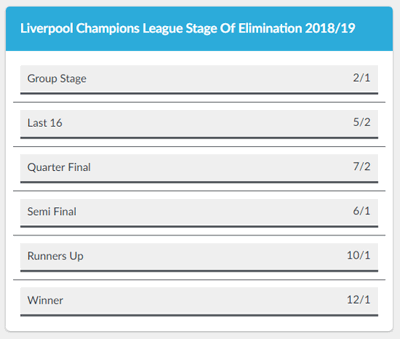 Football specials cover a huge range of weird and wonderful markets and for those really prepared to put the hours in they can yield some great winners at really big odds. Increasingly, in a crowded marketplace, betting sites are looking to differentiate themselves from their rivals. Offering different bets and different types of bet is one way they can do this. The danger for the bookie is that with such new markets, they often have less past data to go on and so it can be harder for them to price up the market accurately.
Football specials cover a huge range of weird and wonderful markets and for those really prepared to put the hours in they can yield some great winners at really big odds. Increasingly, in a crowded marketplace, betting sites are looking to differentiate themselves from their rivals. Offering different bets and different types of bet is one way they can do this. The danger for the bookie is that with such new markets, they often have less past data to go on and so it can be harder for them to price up the market accurately.
The term “specials” really does cover a vast area, with some highly common bets, such as who will be the top scorer, either in a league or at a club under this umbrella. Equally, some much newer markets, such as who will be the top fantasy footballer points scorer or top goalkeeper are covered. If you think you know more about fantasy football than the bookies do than you might just be on to a winner: we certainly were when we backed Seamus Coleman at 150/1 to be the top defender a few seasons back!
There are no real tips or overriding strategies but for those who are prepared to put in the time and effort, these strange bets really can throw up some crackers.
Accas and Multiples
Accas and multiples are loved by novice and recreational punters but in general are eschewed by more serious bettors looking to win over a longer period. Accumulators give you the chance for large wins without having to stake much and so it’s easy to understand why they are popular. The thrill of chasing that big win, plus the fact that you can get a whole afternoon of betting fun from a stake as small as 10p is hard to resist.
Obviously if fun is what you’re after we certainly don’t advise against having a regular accumulator or three. However, if more regular wins are your main aim, we would suggest you stick to singles. The reasoning is simple – on the vast majority of bets, the bookie has the advantage. The odds are shorter than they “should” be, in the same way when you buy something from a shop the shop sells it to you for more than it costs them to buy.
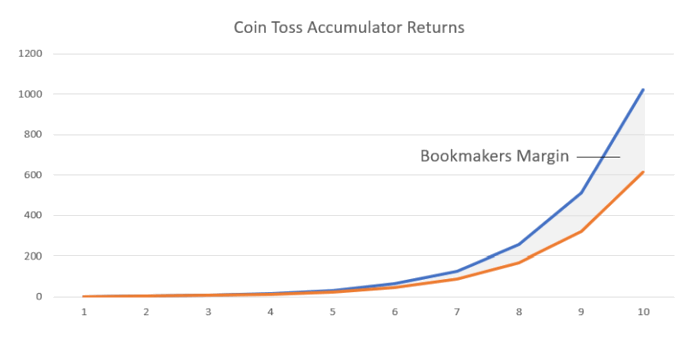
Comparison of coin toss accumulator at true odds (blue) and when including bookmakers margin (orange)
So as an acca multiplies your returns, it also multiplies the disadvantage you are at in terms of the odds and the true probability. So, whilst you think your eightfold of odds-on favourites is a banker that simply can’t lose, the truth is rather different. Assuming that all eight lack value, the combined effect of this might be that your 33/1 bet should really be closer to 80/1.
Football FAQs
- Both Teams To Score Explained & How Does it Differ From Goals Galore?
- Do Own Goals Count In Both Teams To Score (BTTS)?
- What is Scorecast Betting in Football?
- How Does First Goalscorer Betting Work in Football?
- What Does Draw No Bet Mean?
- What Is The Difference Between No Goalscorer And 0-0?
- What Is Double Chance Betting In Football?
- Who Wins the Golden Boot If Two Or More Players Tie?
- How Does Half time/Full time Betting Work?
- How many Red Cards Before A Football Match Is Abandoned?
- Do Goalscorer Bets Include Extra Time or Penalties?
- How Do Booking Points Work in Football Betting?
- What Is Regular Time in Football Betting?
- How Does Shots on Target Betting Work?
- What's the Difference Between to Win & to Qualify/Lift the Trophy?
- Is It Worth Betting on the Draw in Football?
- How Does Corner Betting Work in Football?
- What Does Win Both Halves Mean in Football?
- What is an Assist in Football?
- What Does Match Odds Mean in Football Betting?
- How Do Bet Builders Work?
- How Does Draw No Bet Work in a Football Accumulator?
- What Does Over 2.5 Goals / Under 2.5 Goals Mean in Football?
- What Does Over 1.5 Goals / Under 1.5 Goals Mean in Football?
- What Does Over 0.5 Goals / Under 0.5 Goals Mean in Football?
